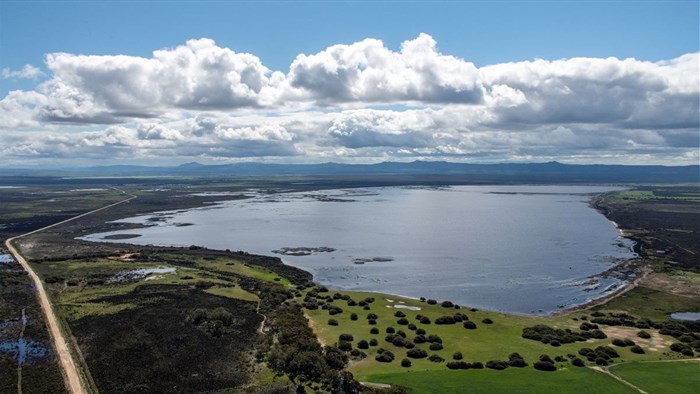
Top stories






More news


Marketing & Media
Ads are coming to AI. Does that really have to be such a bad thing?














Through a donation, WWF took ownership of the Vissersdrift property for incorporation into the Agulhas National Park last year. The move has secured 90% of the Soetendalsvlei wetland and added a further 2,345 hectares to the park which lies about 200km from Cape Town in the Western Cape.
Soetendalsvlei, which is Africa’s southernmost freshwater lake, plays a critical role in recharging groundwater and supplying fresh water for local agriculture. It drains into the Heuningnes River which connects with the sea at De Mond Nature Reserve between Struisbaai and Arniston. Here, the Heuningnes estuary provides both a safe haven for migrating birds and for breeding fish.
By turning this area over to conservation and reducing alien plant infestation and other pressures, the hope is that Soetendalsvlei’s ecological functions will be safeguarded into the future – in line with this year’s World Wetland Day theme of restoration. Wetlands internationally are among the most threatened ecosystems and are often overlooked and degraded.
Dr Luthando Dziba, SanParks managing executive: conservation services, says: "A benefit of this acquisition is that it also protects inland salt pans, many of which are under threat in the Western Cape from urban development, mining and agriculture, along with rare veld types such as the Critically Endangered Central Rûens Shale Renosterveld, Vulnerable Agulhas Sand Fynbos and Limestone Fynbos which face similar threats."
Soetendalsvlei is designated both a Critical Biodiversity Area and an Important Bird Area, supporting over 60 water bird species including several birds of concern such as the Damara tern, great white pelican and two flamingo species, along with over 21,000 migrant and resident birds that are recorded here annually.
Part of the Vissersdrift property supports pockets of milkwood forests around the vlei which once offered shelter to the first inhabitants of this area. South of this property lies the Denhami property that was recently acquired by the National Parks Trust which is also to be included as part of the core of the park. Although it does not have wetlands, it is the link between the Sandberg Mountain and the Soetendal vlei, supporting the ecological functionality of the vlei system.
Dziba adds: "The Soetendalsvlei and wetland properties also add substantial value to the park’s cultural and archaeological attributes. Historically, people used the adjacent salt pans for harvesting salt for local use and later to export to Cape Town.
"About every 50 to 100 years the vlei’s bed is exposed through droughts, such has happened in April 2019 when one could see some of these archaeological and cultural artefacts. Among the first management, actions will be to clear the alien infestation on the north-western end of the property, and to address the erosion control, to sustain the ecological functioning.”
The park will now assume a visible presence on the ground and begin planning and implementing veld and wetland rehabilitation through our Working for Water and Working on Wetlands programmes. SanParks will also plan towards improving area integrity, look at fences, access control and other uses on land. However, the main focus will be restoration of the natural habitat.
Dr Morné du Plessis, CEO of WWF South Africa, says: "In the conservation world where we are often up against it, it’s important that we take a moment to celebrate our successes – and the acquisition of this critically important wetland area for incorporation into Africa’s southernmost national park is one such milestone.
"We are proud to have facilitated the expansion of the Agulhas National Park with a wetland that plays such a significant role in a functioning ecosystem. We are immensely grateful both to our generous donors and SanParks for their efforts in securing this wetland for future generations.”
Dziba concludes: "Estuaries and wetlands are the most threatened and least protected ecosystems in South Africa. The inclusion of this area into the Agulhas National Park not only expands the park but also contributes towards the protection of a critical wetland ecosystem for the Overberg region and its people.
"Through productive partnerships such as this, we can achieve great things as we strive towards meeting the ambitious goals in the new Global Biodiversity Framework agreed upon in Montreal recently. On behalf of SanParks, I express our sincere thanks to WWF for their support in making this dream a reality."